The True Jewels of Central Asia
/On a map of Central Asia, the country of Kyrgyzstan (officially, the Kyrgyz Republic) appears as a small, landlocked jewel. With more than ninety percent of its terrain sitting at over 1,500 meters (4,900 feet), it’s a beautiful paradise for lovers of epic mountain scenery.
As with all countries, one of Kyrgyzstan's greatest treasures is its people, and some of their greatest treasures are their languages, which inextricably contain and express the cultures of the people. But the shortage of children’s books in native languages has always been acutely felt in the post-Soviet Kyrgyz Republic. Each academic year, the lack of books in schools and libraries becomes a trending topic for public discussion at all levels. Despite the fact that most of the population speaks Kyrgyz and more than eighty percent of students study in Kyrgyz, only ten to fifteen percent of books available to children are in that language.
Not only are most of the books available to Kyrgyzstan’s children in Russian, but they’re also very old and outdated, with few depicting modern day life. The few bookstores in the country are located in the capital city, comprise only three to five percent of inventory, and are too expensive for many parents to afford.
We are therefore very excited about the USAID-funded Okuu Keremet! project, contracted by USAID to RTI International and implemented in partnership with the Ministry of Education and Science of the Kyrgyz Republic. This project has chosen to use Bloom software for the creation of books in the Kyrgyz, Uzbek, Tajik, and Russian languages, so SIL LEAD and the Bloom Development team have had the pleasure and privilege of providing some support to the project.
These illustrations are from a book created for the Okuu Keremet! project. It tells of a breed of dog called a Taigan, which was historically kept by nomadic Kyrgyz people as a hunting dog. This tall, long-legged dog has a running speed of 50-60 km per hour, and currently works primarily to protect livestock. Taigans are very intelligent, friendly dogs.
The Okuu Keremet! Bloom library currently has 533 books on its shelves for children from 7-11 years old, with dozens more in the pipeline, and with the ultimate goal to produce 1,500 titles. These books will focus on contemporary topics like nutrition, health, mathematics, inclusion, and social and emotional learning - conveyed through contemporary stories and informational texts.
This collaborative effort is the work of a large community of authors, illustrators, and leveling experts, who are creating these books in a variety of genres, with inclusion, diversity, and gender equality in mind.
It's a monumental task.
Illustrators and authors are trained on the attributes of good early grade books, on genres and specific topics they wish to prioritize, on the technical specifications of publishing, and on the process of CreateKitep (book creation), which includes training, mentorship, feedback, leveling, and editing.
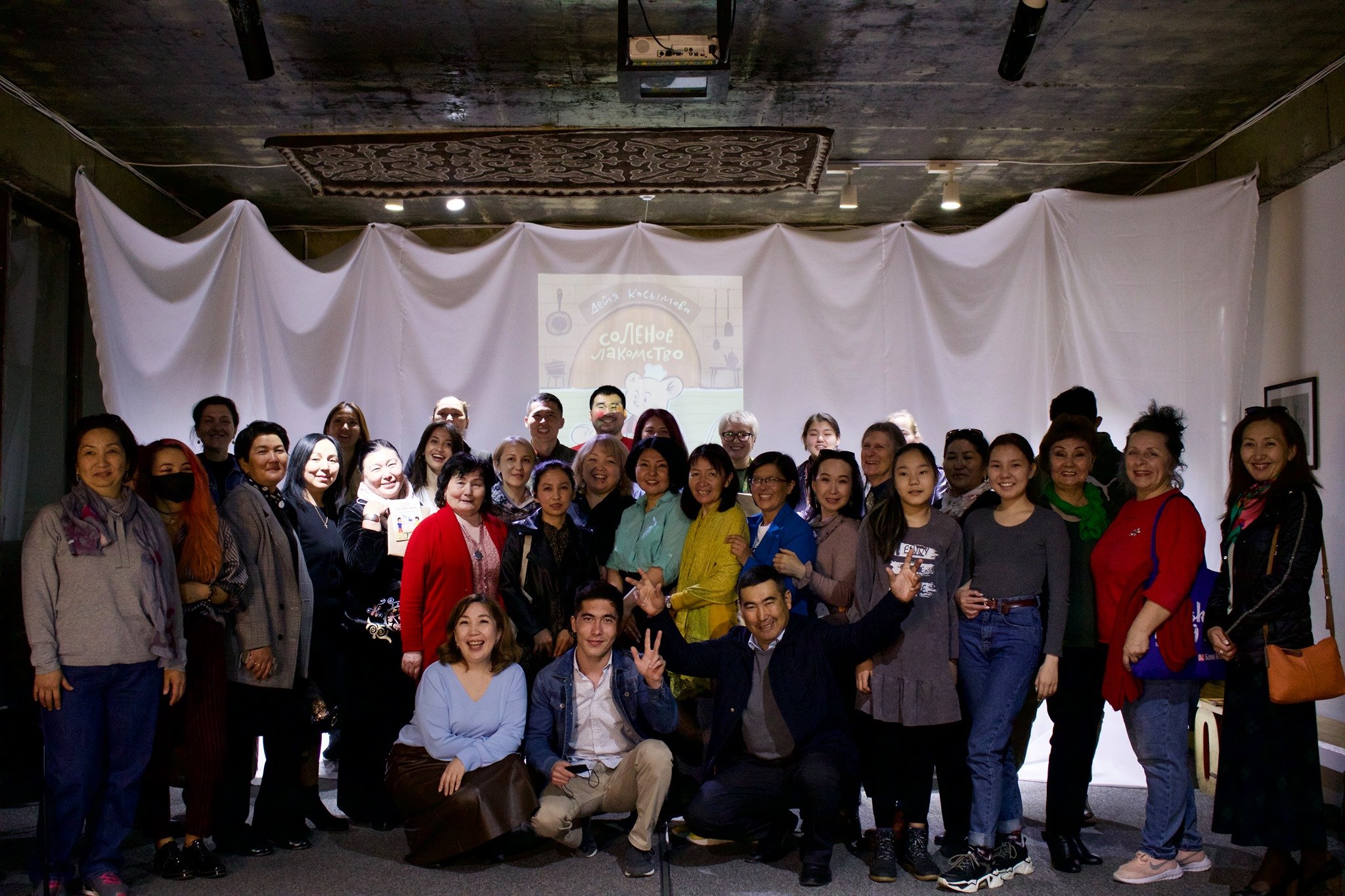
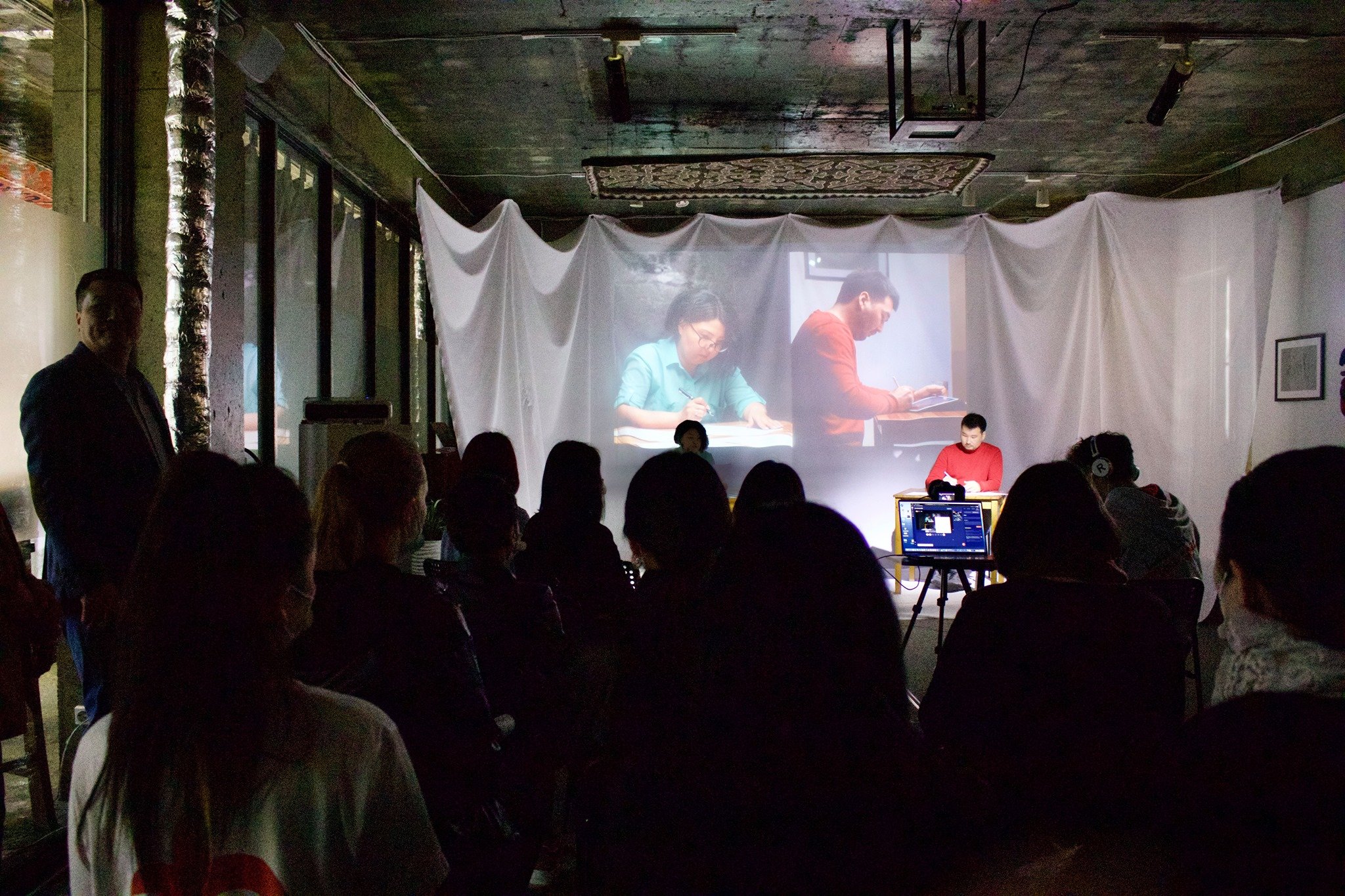
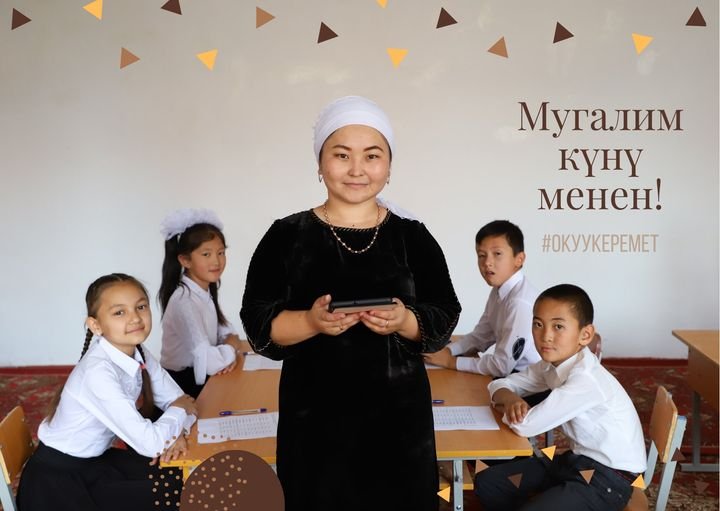
The books thus far produced have recently been released on the Bloom Library. We asked why RTI International chose to use Bloom for the Okuu Keremet! project and Liana Gertsch, Chief of Party at RTI International, told us that:
The main factor that led me to consider Bloom is that Okuu Keremet! has to generate 1,500 titles in local languages within the life of the project (5 years). This was already a daunting challenge, compounded by COVID-19 which struck the country 4 months after the project started. We needed to identify an efficient way to produce books (at distance). I had experience with Bloom in Bangladesh (the READ project from 2013-2017). Bloom offered the possibility of adapting/translating open source books into Kyrgyz and Russian and the software seemed manageable for the authors and illustrators here to learn. By focusing on adaptation to begin with, authors and illustrators could save time on inventing new stories while they learned how to use the software. The first batch of authors and illustrators, two mentors (one for Kyrgyz, the other for Russian) and a couple of project staff were trained by a subcontractor on how to use Bloom. We had a colleague in our home office who started systematically combing through all known open source book depots to identify eligible books that could be adapted for our target group.
We decided to hire a dedicated position within the project to manage the work with SRM (Supplementary Reading Materials), including Bloom. Over time, a few authors and illustrators became skilled resources in the use of Bloom software and they managed the technical part for the wider group of authors and illustrators. In the second round, we were therefore able to ask authors and illustrators to invent original stories and artwork since working with Bloom was getting easier. Cost was also a consideration because we have a finite budget for printing books and printing books in Russian and Kyrgyz by commercial publishers is expensive. We saw more value for money by shifting to digital books in the short term, with the possibility of printing in the future.
SIL LEAD is thrilled that Bloom meets the needs of Okuu Keremet!, and that we're able to support this wonderful project to improve learning outcomes among 300,000 elementary school students in Kyrgyzstan.
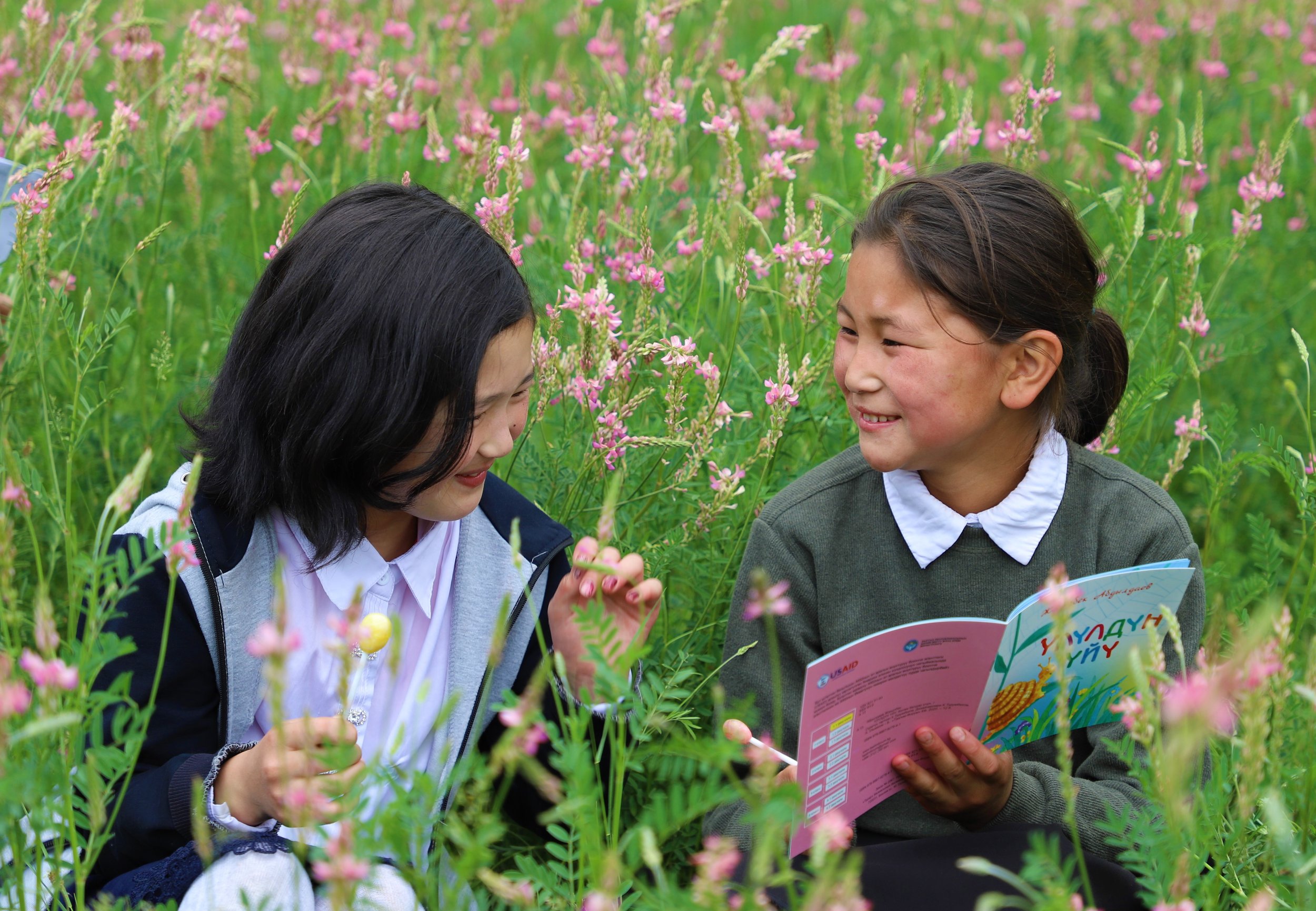
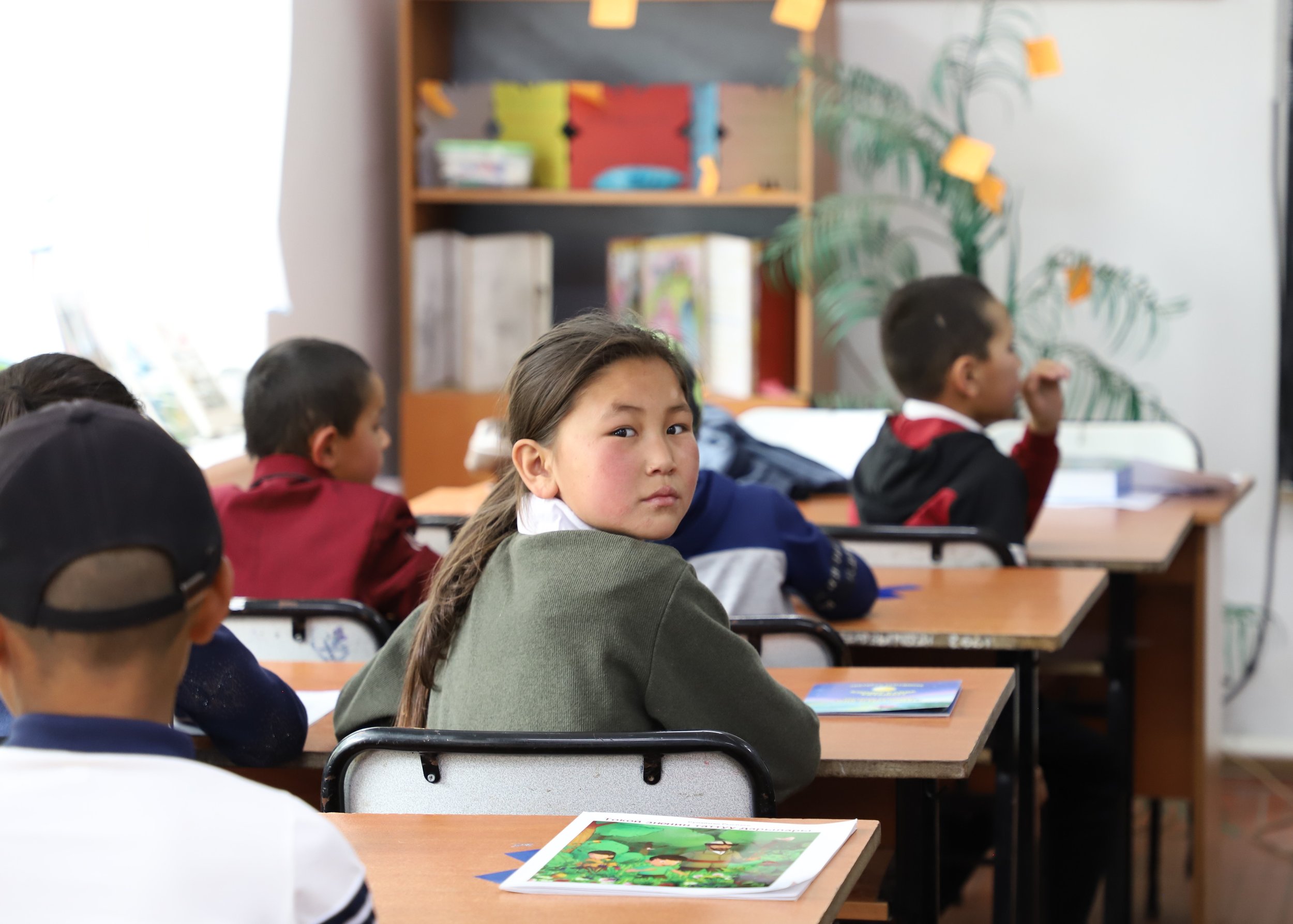
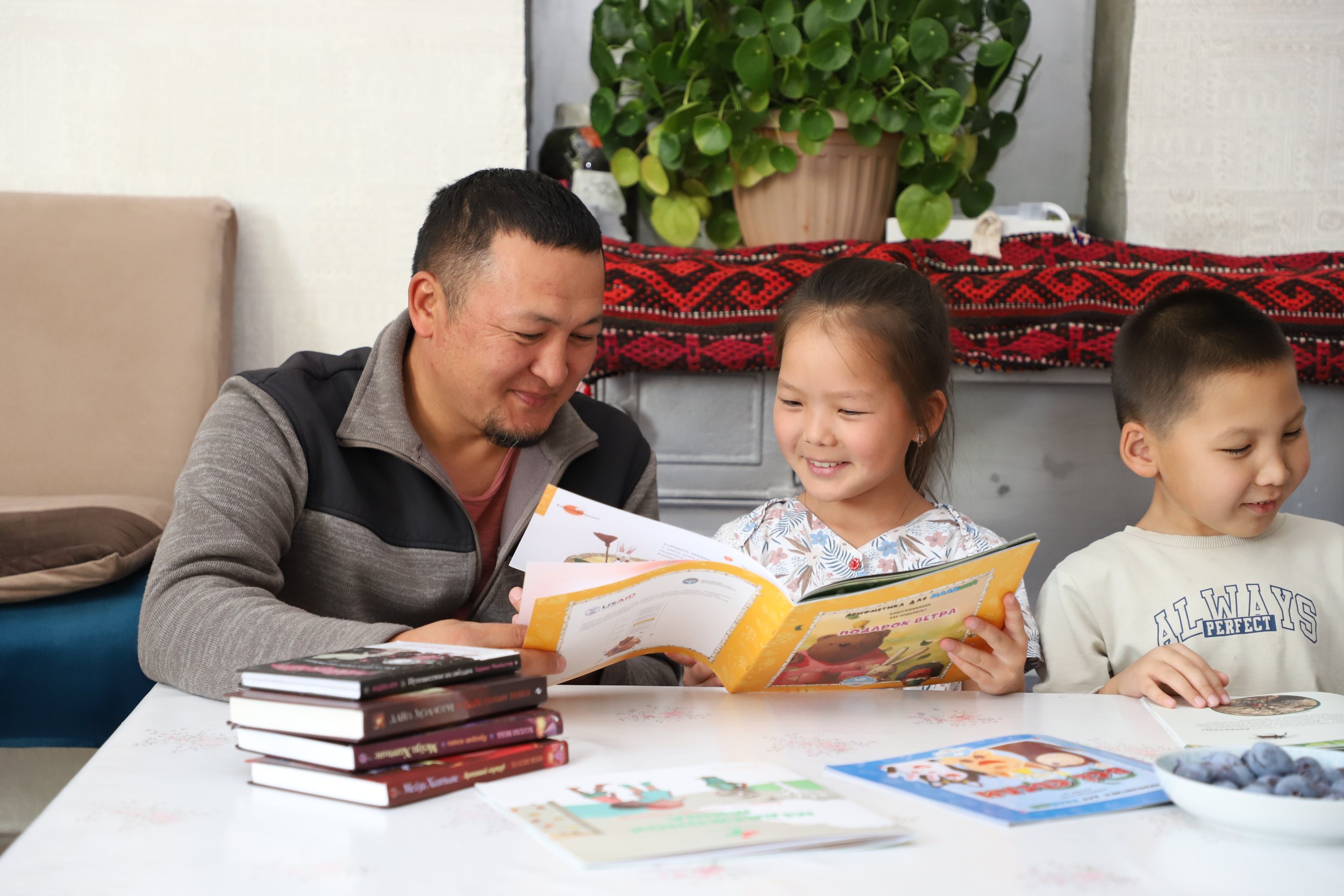
Education is vital to improving the lives of these children and, ultimately, to supporting the flourishing of the Kyrgyz Republic. If this beautiful country is a jewel of Central Asia, its children are the brilliant facets that sparkle and bring it to life.
The Okuu Keremet! project will help them shine even brighter.





